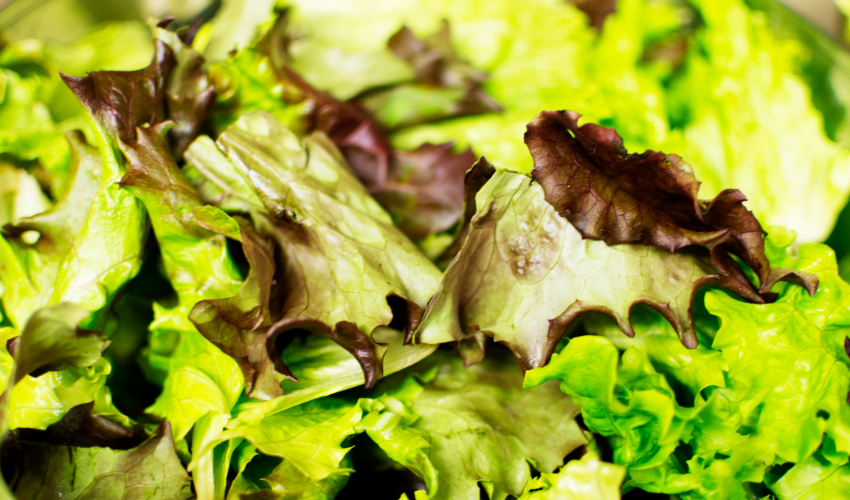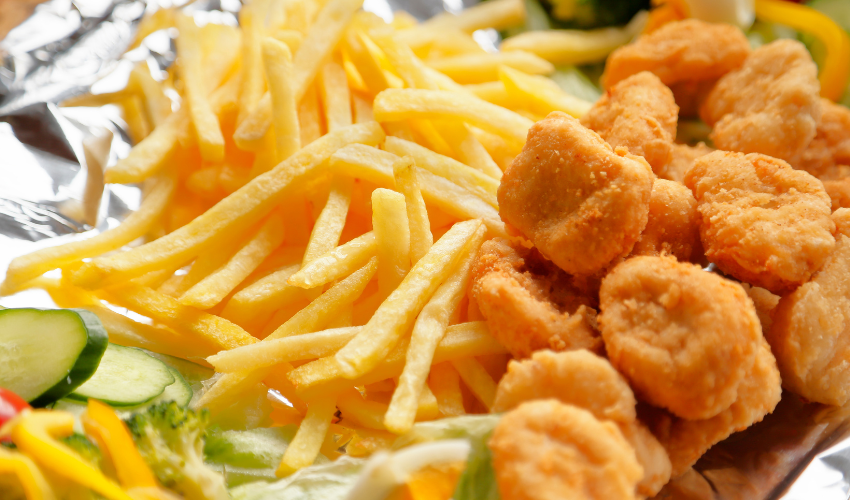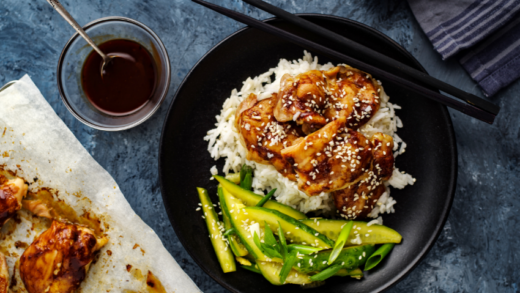Freezing food is a great way to preserve its freshness and extend its shelf life. However, not all foods are created equal when it comes to freezing. Some foods can become mushy, lose their flavor, or develop freezer burn. In this article, we’ll explore the food you should never freeze and why.
Fresh Food You Should Never Freeze:

- Fresh herbs.
Fresh herbs are delicate and can become mushy and lose their flavor when frozen. Instead, you can dry them or chop them up and freeze them in ice cube trays with a little olive oil for use in recipes. - Cucumbers.
Cucumbers have a high water content and can become mushy when frozen. If you want to use cucumbers in a recipe, it’s best to use them fresh or pickle them. What to do with a lot of fresh cucumbers you can find out in our next article. - Salad greens.
Salad greens like lettuce, spinach, and arugula are also high in water and can become wilted and slimy when frozen. If you have leftover greens, it’s best to eat them within a few days or use them in a cooked dish. - Mayonnaise.
Mayonnaise can separate and become runny when frozen. If you have a partially used jar of mayonnaise, it’s best to finish it within a few weeks or store it in the refrigerator. - Soft fruits and vegetables. S
oft fruits and vegetables like ripe tomatoes, strawberries, and peaches can become mushy and lose their flavor when frozen. If you have extra ripe produce, it’s best to eat it or use it in a recipe right away. - Zucchini.
To freeze zucchini or squash is also a bad idea because it contains a lot of water, so better to cook zucchini before it spoiled.
Cooked Foods You Should Never Freeze

- Fried foods.
Fried foods like french fries, chicken nuggets, and onion rings can become soggy and lose their crispy texture when frozen. It’s best to eat fried foods fresh and make them fresh each time you want them. - Pasta with sauce.
Pasta with sauce can become mushy and the sauce can separate when frozen. If you have leftover pasta, it’s best to store it separately from the sauce and reheat it in the microwave or on the stove. - Rice and grains.
Rice and grains can become mushy and lose their texture when frozen. If you have leftover rice or grains, it’s best to store them in the refrigerator and eat them within a few days. - Dairy products.
Dairy products like milk, cream, and yogurt can separate and curdle when frozen. If you have leftover dairy products, it’s best to use them in a recipe or finish them within a few days. - Egg-based dishes.
Egg-based dishes like quiches, frittatas, and omelets can become rubbery and lose their texture when frozen. If you have leftover egg dishes, it’s best to store them in the refrigerator and eat them within a few days.
Frequently Asked Questions:
Can I freeze fresh berries?
Fresh berries can be frozen, but they can become mushy and lose their flavor. If you want to freeze fresh berries, it’s best to wash and dry them and store them in an airtight container. Don’t miss a chance to freeze the most healthiest berries during their season!
Can I freeze bread?
Bread can be frozen, but it can become dry and lose its texture. If you want to freeze bread, it’s best to wrap it tightly in plastic wrap or aluminum foil to protect it from freezer burn.
Can I freeze potatoes?
Potatoes can be frozen, but they can become mushy and lose their texture. If you want to freeze potatoes, it’s best to parboil them first and then freeze them in an airtight container.
Can I freeze eggs?
Eggs can be frozen, but they need to be beaten and then frozen in an airtight container. Frozen eggs can be used in recipes like scrambled eggs or baked goods, but they cannot be used for dishes like fried eggs or omelets.
Can I freeze avocado?
Avocado can be frozen, but it can become mushy and lose its flavor. If you want to freeze avocado, it’s best to puree it first and then freeze it in an airtight container.
Conclusion
Freezing food can be a great way to extend its shelf life, but it’s important to know which food should never freeze. Fresh herbs, cucumbers, salad greens, mayonnaise, soft fruits and vegetables, fried foods, pasta with sauce, rice and grains, dairy products, and egg-based dishes are all examples of foods that should never be frozen. By following these guidelines, you can ensure that your food stays fresh, flavorful, and safe to eat.






















